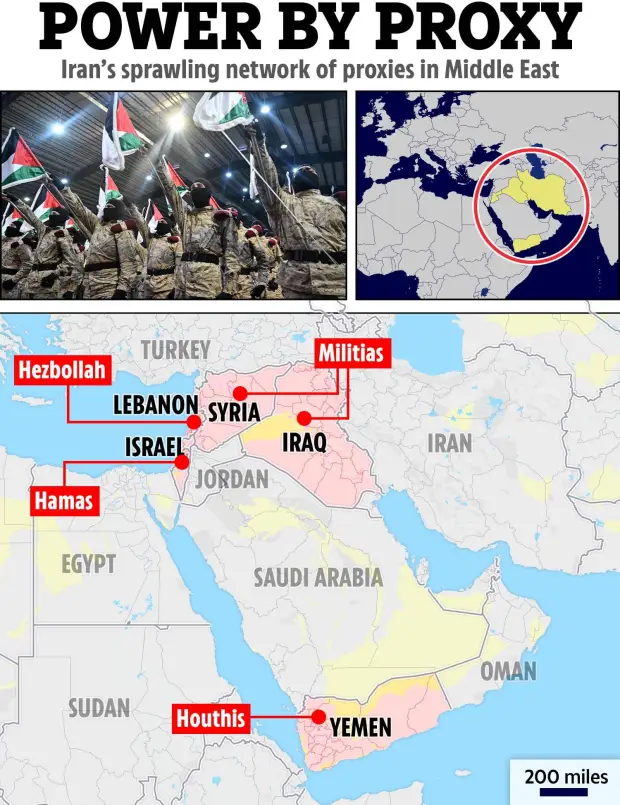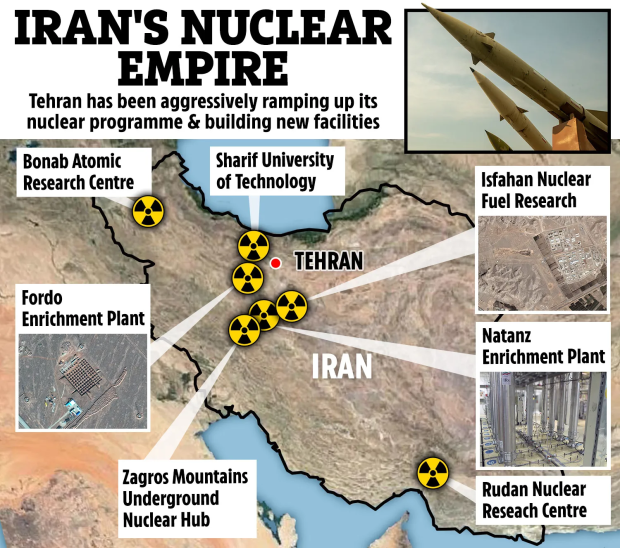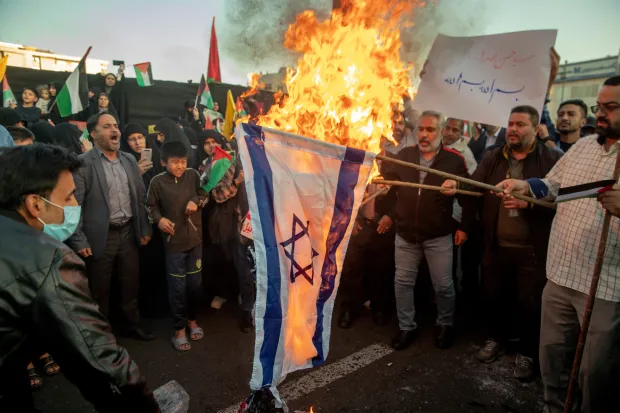
May 25 2024
The death of Iranian president Ebrahim Raisi could ignite a powder keg of boiling tensions in the Middle East, conflict analysts have warned. The West needs to dismantle Tehran’s ruthless regime before it harnesses full nuclear power and arms terror proxies like Hamas with formidable weapons, they say.
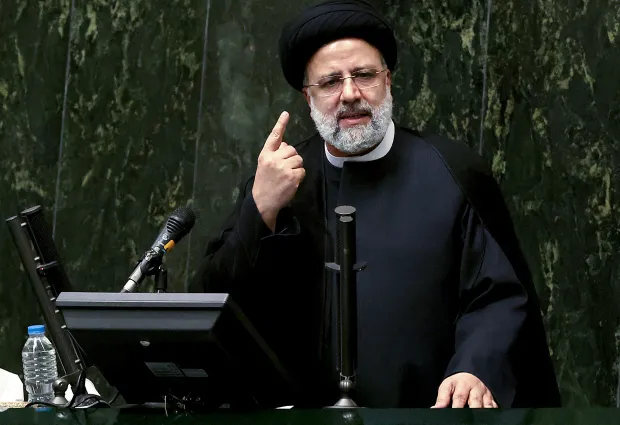
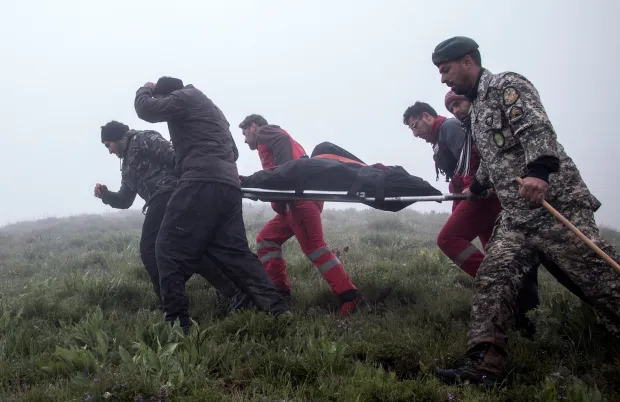
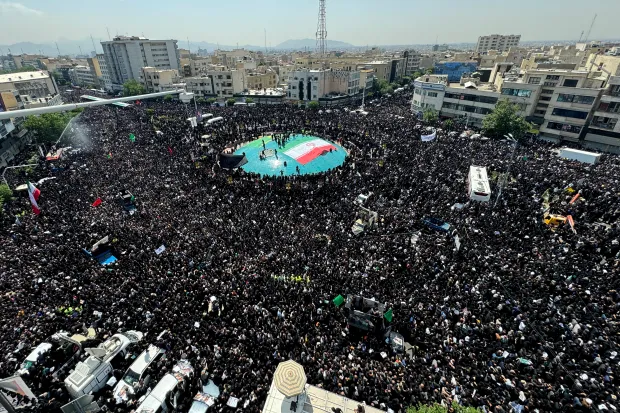
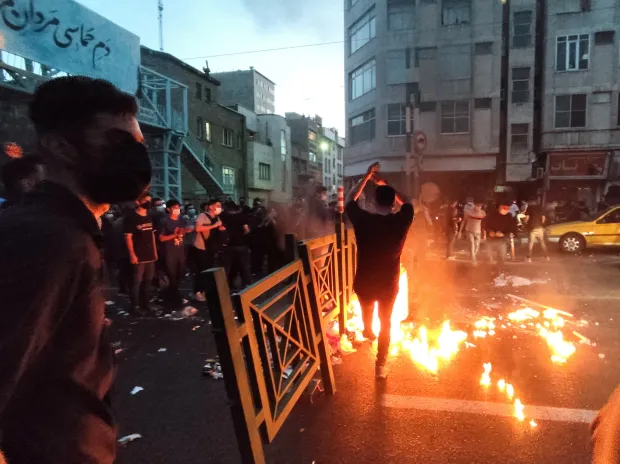
Alan Mendoza, director of think tank the Henry Jackson society, told The Sun that “we are sleepwalking into a nuclear armed Iran with no thoughts about the consequences”. Tehran, he says, will continue to be “a spoiler in the region” alongside its network of bloodthirsty proxy groups – who it could arm with nuclear weapons.
Two Iranian-American analysts – who have seen for themselves the brutality of the regime – told The Sun this is the moment for the West to strike. Dr. Majid Sadeghpour and Dr. Ramesh Sepehrrad, both at non profit Organization of Iranian American Communities (OIAC), said the unrest sparked by Raisi’s death directly threatens the wider Middle East.
Dr. Sadeghpour told The Sun that the Iranian regime is “extremely unstable and irreparably damaged” following the helicopter crash that also killed Iran’s foreign minister. And Dr. Sepehrrad, who thinks Tehran will soon see an uprising, said Supreme Leader Ali Khamenei’s dictatorship, which has been met with increasing opposition for some time, is now “in chaos”.
1. Chaos in the Regime
President Raisi, dubbed the “Butcher of Tehran”, was responsible for the deaths of thousands of Iranian people.
He died in a fiery helicopter crash along with seven others nearly a week ago.
Despite celebrations in the streets after his death, Khamenei put on an elaborate three-day funeral to convince the world that he was being mourned. And in the hours after the helicopter crash, some Iranian officials accused Israel and even the US of being involved.
The conspiracy theories, to which Tel Aviv simply said “it wasn’t us”, are a sign of instability, analysts warn. Dr. Mendoza told The Sun: “The Iranian regime is particularly prone to conspiracy theories. There’s a lot of paranoia.
Maintaining the wolves in the regime from attacking each other will be more difficult for the regime… it’s a strategic blow to the Ayatollah
Dr Majid Sadeghpour
Another theory that swept through the Iranian elite is that Khamenei took out Raisi to put his own son, Mojtaba, firmly at the front of the line of succession.
Dr. Mendoza said: “If there were two contenders, and one gets removed it’s obviously natural for conspiracy theories to go: ‘Who stands to benefit?’ It’s the other side again. “Iranian-American Dr. Sepehrrad, who watched her own parents and young sister arrested in Iran for supporting pro-democracy literature in the 1980s, explained why the false claims are dangerous.
She said they allow Iran’s elite to “distract the conversation from losing a major player in the succession planning of the supreme leader”. It doesn’t ultimately matter what caused the crash, she argues, as the regime is still “in chaos”.
Dr. Sadeghpour also told The Sun that Tehran’s government has been made “significantly and strategically weaker” thanks to internal turmoil following Raisi’s death.
“The ‘godfather’ may find another enforcer, but finding one of that set of qualifications and brutality will be somewhat difficult.” He added: “Maintaining the wolves in the regime from attacking each other will be more difficult for the regime. That’s why it’s a strategic blow to the Ayatollah.
“It is extremely unstable. What we see is actually the infighting… we can see that this regime is irreparably damaged.” Iranian military investigators have so far found no evidence of foul play in the helicopter crash, according to state media.
2. Uprising in Iran
Dr Sepehrrad told The Sun that the response to Raisi’s death could prompt an uprising – as Khamenei’s path to survival is weakened. “[Raisi] delivered on every ask when it came to brutality, when it when it came to violence, when it came to wars,” she said.
“[Khamenei] was grooming Raisi, because he was looking for someone that can really 100 per cent carry out the violence and the backward ideology of a supreme leader in Iran. “This is where Khamenei sees his path to survival. Now he doesn’t have a runway to groom another one. “And that runway is essentially going to choke this regime. I think they’re going to see another uprising.”
[The Iranian people] are seeing a new opening for a massive blow to this regime, whether it comes in a form of nationwide uprising or any other form
Dr Ramesh Sepehrrad
Dr Sepehrrad thinks that the response to Raisi’s death is a clear sign of a brave opposition movement happening inside Iran.
She said “the celebrations, the fireworks, the passing out of the sweets, the comments and the clips that are coming from inside Iran”, shows the joy of the Iranian people at the death of their “Butcher” president.
And Dr Mendoza believes that the incoming so-called “vote” for a new president could act as the catalyst for such protests inside an already turbulent Iran. He said: “What might spark a movement of unrest is what happens in the choice of a replacement.
3. Arming Proxies
Dr Sepehrrad said Iran currently relies on two key policies: “Violence and crackdown at home and proxy war in the region, and this is how the regime maintains its balance.” Dr Sadeghpour, who escaped Iran after the 1979 revolution following his brother’s execution, explains how the violence at home affects the rest of the Middle East.
It is “simultaneous” to the violence carried out by Iran’s bloodthirsty network of terror proxy groups – Hamas in Gaza, the Houthis in Yemen and Hezbollah in Lebanon.
Violence and crackdown at home and proxy war in the region, and this is how the regime maintains its balance
Dr Ramesh Sepehrrad
He told The Sun: “That level of violence against the people of Iran is simultaneous with the level of violence [via proxy groups]. “They’re parallel. They go up together. They’re synchronized.”
Against a backdrop of already boiling tensions in the region, Iran’s clandestine nuclear power poses a serious risk. Dr Mendoza told The Sun that Tehran could “extend the nuclear umbrella to all their proxies as well if they wanted to” across the Middle East. The West would then “have trouble containing Hezbollah, containing Hamas, containing the Houthis who are operating in the Gulf”.
Nuclear Threat
Following Raisi’s death, Dr Mendoza says, “Iran will stay on its path of opposition to the West, as part of opposition to Israel… and will continue to be a spoiler in the region“.
In fact, its clandestine nuclear programme has now reached the point where Tehran could build a nuclear bomb today, Dr Mendoza claimed. He told The Sun: “The working assumption is that they could, if they wanted to, build a nuclear bomb now. “They’ve made their statement already, which is: ‘We are, you know, on the cusp of getting the nuclear bomb’.”
We are sleepwalking into a nuclear armed Iran with no thoughts about the consequences
Dr Alan Mendoza
The US and UK, he argues, have done nothing to stop this.
“They’ve been enriching uranium, increasing the number of centrifuges, doing all the things you need to do to get to that nuclear breakout level and they’ve been unpunished. “There have been no sanctions on them. Nobody is snapping back at things they have said. This is a problem. They’ve kind of gotten away with it.”
Dr Mendoza warned: “It does appear that we’re sleepwalking into a nuclear armed Iran with no thoughts about the consequences.”
He believes the West needs to act now and prevent Iran from becoming a nuclear power, which would be “a great danger to the entire world”. If sanctions aren’t enough, he believes the world will have “no choice but to look at removing the regime” by force.
Iran poses a threat to Israel, the US and the rest of the West
https://www.the-sun.com/news/11456731/iran-middle-east-tensions-war-nuclear-threat-ebrahim-raisi/

